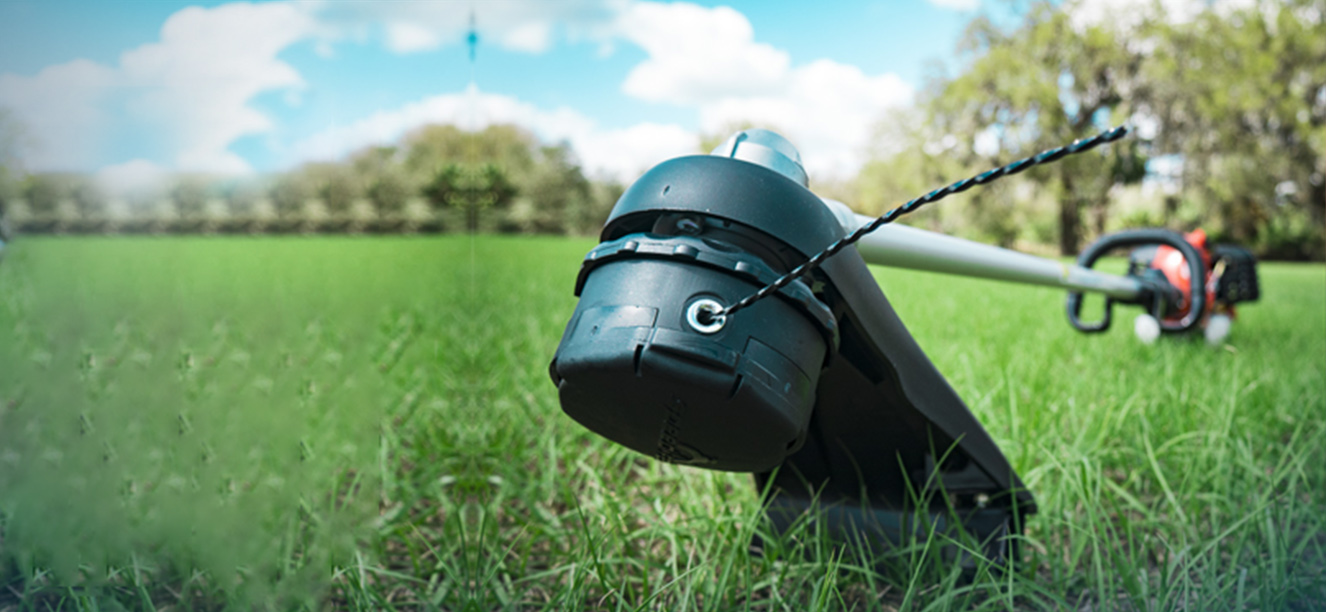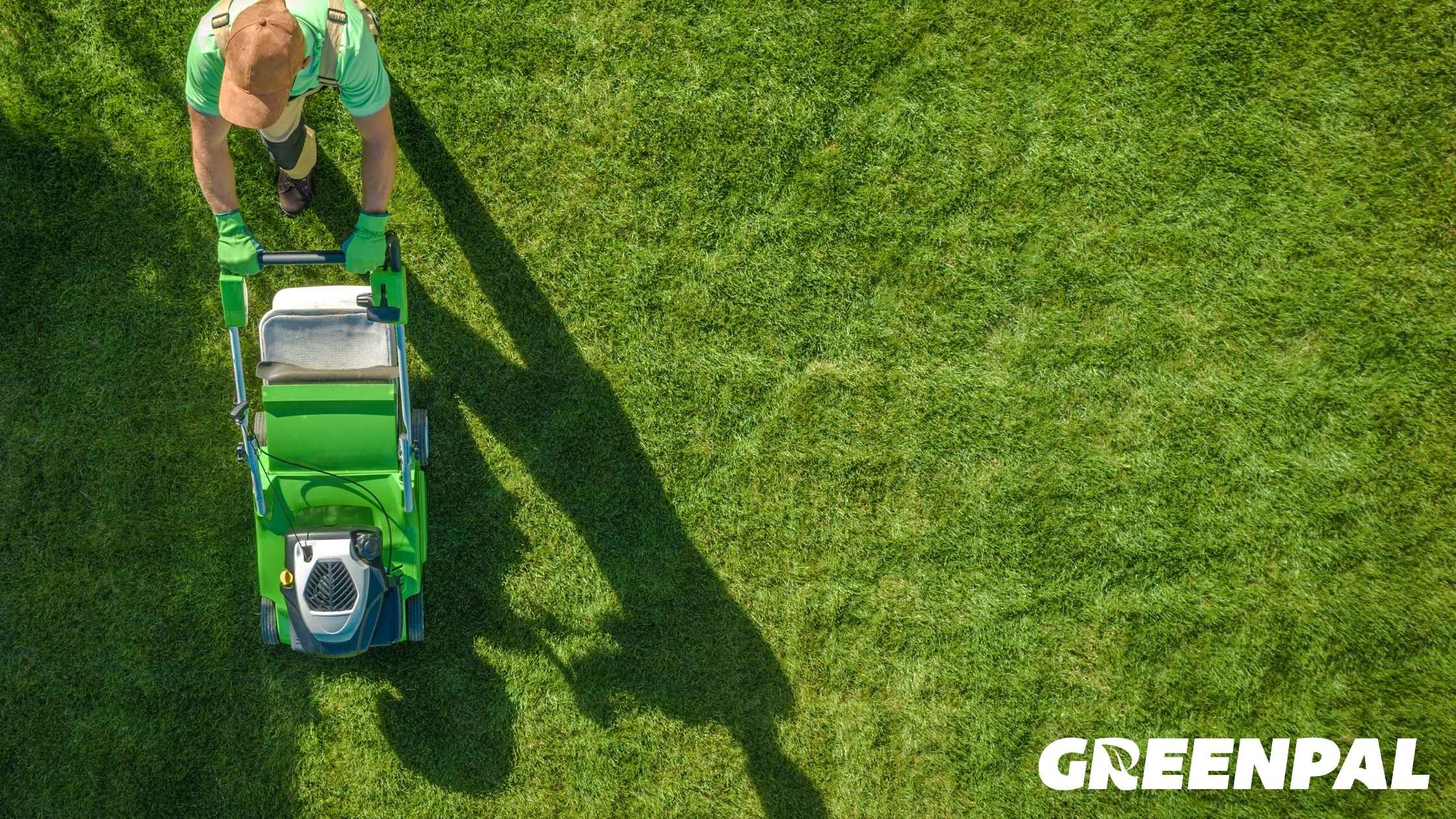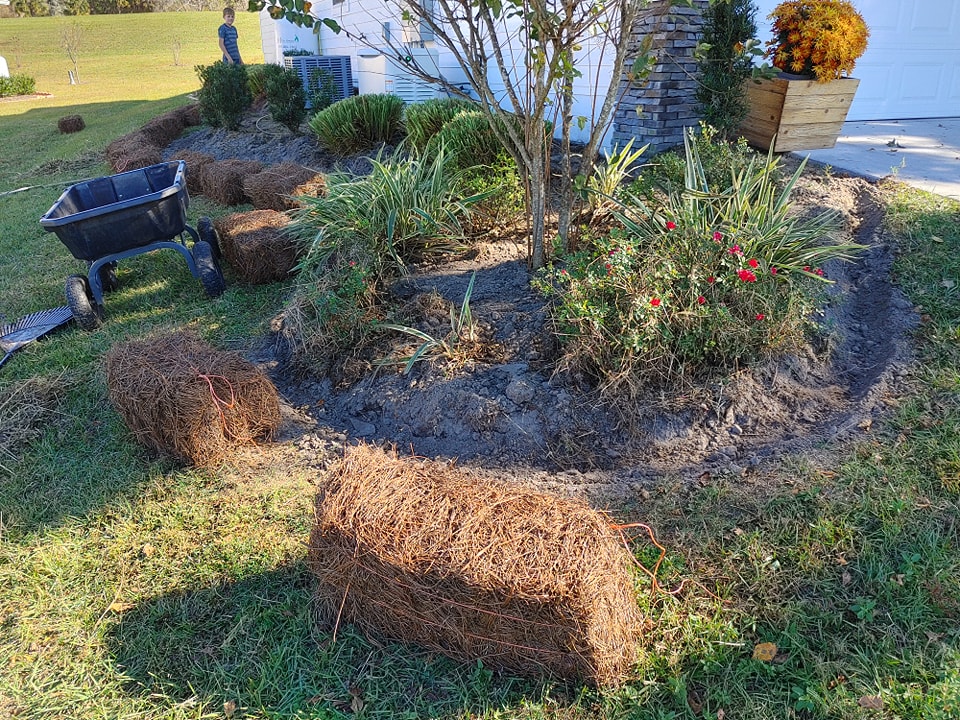Guard or no guard?
The lawn care debate that rocks the industry.
 CAUTION! Before reading any further, be forewarned, this is one of the most controversial topics in the field of lawn care.
CAUTION! Before reading any further, be forewarned, this is one of the most controversial topics in the field of lawn care.
Lifelong friendships have ended, partnerships broken, and Facebook connections torn asunder.
The question at hand? Should you use a guard on your weed eater or not?
Don’t jump to conclusions, cause the answer might surprise you!
If you are strong enough to handle this controversial subject, let's dive in!
What do you mean guard or no guard?
For those of you in the back who may not know what I am referring to, I'll take a moment to explain.
The guard at the end of your weed whacker. You know the one that is designed to protect your shins from rocks, and prevent your string trimmer from shooting debris everywhere?
This is crazy but, some lawn care pros SWEAR that removing that guard will change your lawn care career. In a good way.
I know, it sounds ridiculous. But let’s hear them out.
The Benefits of Going No-Guard on Your Trimmer
Look, before we write the no-guard people off as crazy, we need to take a look at the benefits of running a trimmer without a guard on it. Part of learning how to weed eat like a pro is learning techniques. And the no guard technique has it's uses.
And there really are some solid benefits to running a trimmer without a guard. But they are likely very limited to specific situations.

Longer String
One of the most common arguments for running a string trimmer with no guard is that it allows you to have a longer string.
While this technique may not help your string last longer, longer string can be beneficial when you are trying to cover more area with your trimmer as quickly as possible.
In my experience, however, covering more area with a string trimmer isn’t really a benefit in a residential situation. I usually cut close enough to the borders that one pass with a trimmer is all I need. But there may be an argument for running without a guard in an overgrown area or a space where a mower won’t fit.
Pro No-Guard Tip! If you let too much string out, you can use a curb or other hard surface to cut the extra string.
See the String When Edging
Now I know that this is another sensitive subject among lawn care professionals. But let’s face it, most of us have used, or still do use a weed wacker for edging properties. It's not always practical or possible to have an extra piece of equipment on the truck. Especially when you are new to the business.
Here's the deal, some lawn care pros have found that they can simply see the string better when they edge without a guard on. This allows them to better control the cut the trimmer is making as they walk along the edge they are clearing. Which can allow you to make a straighter cut and a sharper edge.
 The Cons of Running No-Guard
The Cons of Running No-Guard
It’s no secret, there are some obvious downsides to running a weed wacker without a guard.
Although they are likely apparent, let's touch on them real quick.
Debris Will Go Everywhere
Guards are intended not only to cut the string and control the length. They were -also made to control debris such as grass and rocks.
Additionally, a guard will also slow the speed of the debris a bit as it is released. Giving it less momentum to cause potential damage. Such as throwing a rock through your client's window.
One thing is for certain. Without a guard, you better be wearing some thick pants, cause you are much more likely to get your shins bloodied by rocks.
Additionally, allowing your employees to run a trimmer without a guard, may be a lawsuit waiting to happen.
 Harder on Your Engine
Harder on Your Engine
There is a lot of debate over how damaging running longer string on your weed eater can be. But it is likely that running a longer string on your weed wacker may shorten the lifespan of your equipment.
Running a longer string on a curved shaft trimmer is also likely to be damaging to the shaft and may result in the braided line breaking. 
Frequently Asked Questions
Why do people take guards off weed eaters?
People remove guards from weed eaters to increase cutting swath, improve visibility of the cutting area, and reduce weight.
What are the safety risks of using a weed eater without a guard?
Safety risks include flying debris hitting the operator or bystanders, increased chance of cutting accidents, and potential entanglement with the string.
What are the legal implications of using a weed eater without a guard in a professional lawn care business?
Operating without a guard can increase the likelihood of accidents, potentially leading to liability issues and lawsuits. It's important to assess the risks and consult local regulations and insurance policies.
What protective gear should I wear if trimming without a guard?
Wear protective goggles, long pants, sturdy boots, gloves, and possibly a face shield when trimming without a guard.
Can removing the guard from a weed eater affect its warranty?
Yes, removing the guard can void the warranty as it is considered a modification that deviates from the manufacturer's intended use and safety design.
How do I decide whether to use a guard on my weed eater?
Consider the specific conditions of the area you're working in, your experience level, and the equipment you're using. Weigh the pros and cons, including safety, efficiency, and equipment wear.
Quick Guide to Weed Eater Guard Usage
| Feature | With Guard | Without Guard |
|---|---|---|
| String Length | Standard | Extended for wider coverage |
| Debris Safety | Reduced risk | Increased risk of injury |
| Visibility & Control | Limited visibility | Improved trimming precision |
| Equipment Wear | Less wear and tear | Potential for more damage |
| Legal and Safety | Compliant with safety norms | Higher risk of liabilities |
| Recommended Use | General trimming | Specific situations only |
The Bottom Line
With the exception of cutting a larger area, and edging. A properly functioning weed whacker should offer you a premium cut, with the guard on.
If you find that the string trimmer performs better without a guard, it may be your equipment. Not the guard itself. But then again, it may simply be a matter of personal preference.
We have an article on the best commercial weed whacker if you need help deciding which equipment is right for you.
But, that being said. Some lawn care pros swear by it! And even say if you are aware of your surroundings, it's not a problem to run your weed whacker without a guard.
I guess there is only one way to find it. And that is to try it on your own. Don't worry we won't judge!
Whatever the case, you will want to weigh each of these options carefully before launching your lawn care company.
Short Summary: Pros and Cons of Operating Weed Eater Without Guard
Pros |
Cons |
Conclusion |
Longer String for Quick Coverage |
Debris Chaos and Safety Risks |
Personal Preference, Consider Surroundings |
Improved Visibility for Edging |
Potential Engine Strain |
Trial and Error to Determine Suitability |
Get Lawn Care Near You
Check out these other Articles













